[coffee tasting] does drinking black coffee have to be sour and bitter? How should I taste the black coffee?
Professional coffee knowledge exchange more coffee bean information please follow the coffee workshop (Wechat official account cafe_style)
When you order a cup of coffee in a cafe, the first question is usually "do you like it sour or bitter?" , "can you accept acidity?"
"sour?" Why is the coffee sour? Is it sour? We all have such doubts in our minds.


As a result, there is such a misunderstanding-what baristas call sour is similar to the sour smell of fruit, or a soft, round acidity, while what customers think is acrid and unpleasant acidity, or the green acerbity of immature fruit.
Therefore, many people will answer that they do not like to drink coffee with acidity, even if they cannot say exactly which flavor they prefer, but they can clearly say "not sour", "not too sour, not too bitter".

Will the sour black coffee be sour?
In fact, human beings are very sensitive to acid and bitterness. generally speaking, food spoilage will produce sour taste, and toxic food will have bitter taste, which is the mechanism of human self-protection. If we drink bitter coffee for a long time, we may not get used to it when we drink sour coffee, so everything is a habitual problem.
Coffee beans are the fruits of coffee trees, and each fruit has the characteristics of natural acidity. "acid" will be affected by baking and quenching, through different baking conditions, how to make this "sour taste" ingenious change, is also a key factor in the texture of coffee beans.
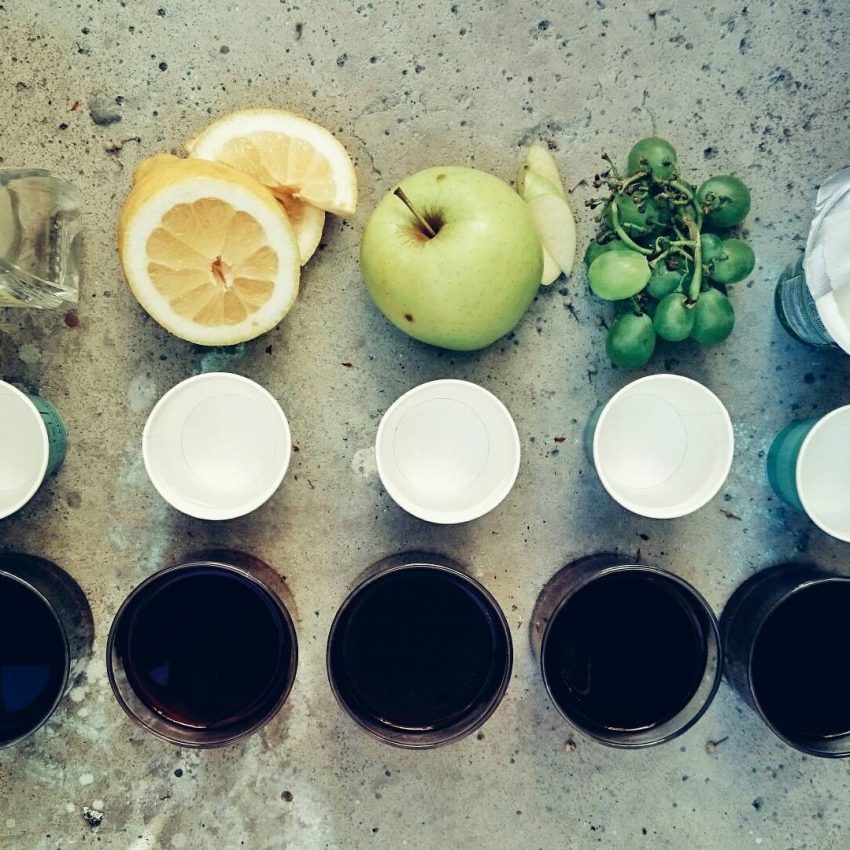
The sour aroma of good coffee can bring more sour connotation. For example, the aroma is obviously refreshing and pleasant, with a fruit-like flavor, or a soft, round acidity, which means that this cup is a cup of coffee with a "high-quality sour taste".
On the other hand, inferior caffeic acid is caused by improper planting, roasting and brewing, resulting in an unpleasant sour feeling, which is usually accompanied by a "sharp" feeling, which is also the reason why most people do not like the sour taste of coffee.
Whether the coffee will be sour, whether it is "good" acid or "bad" acid depends on the variety of coffee beans and the degree of baking. The shorter the baking time, the lower the degree of caramelization. At this time, organic acids are still retained in the beans, so it is easy to produce sour taste. On the contrary, the longer the baking time, the less likely it is to have a sour taste. In addition, the temperature of brewing coffee also has an effect. Lower-temperature water is also more likely to brew coffee with acidity than high-temperature water. People who are afraid of acid had better finish it while it is hot, otherwise the sour taste of coffee will become more obvious as the temperature drops.
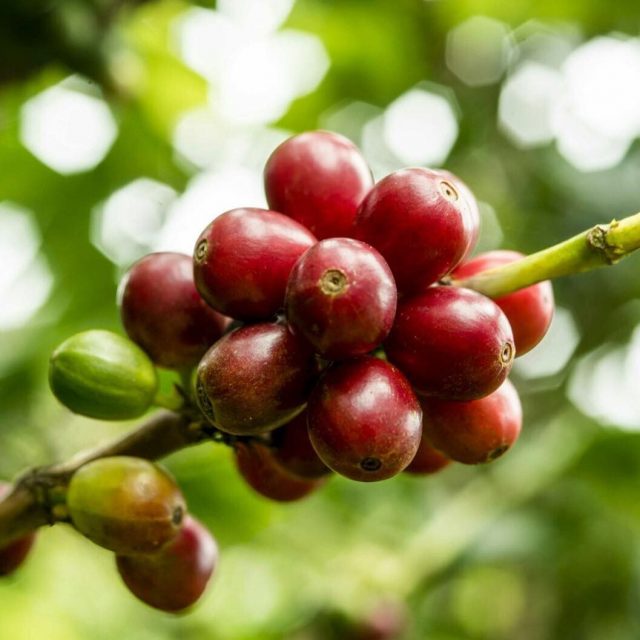
The acidity of coffee has a lot to do with the variety of coffee beans and the degree of roasting, because coffee beans will fully absorb the acid of the pulp in the process of growth and processing, so that coffee beans will have acidity. In terms of varieties, high-quality Arabica coffee beans are more acidic, so coffee beans produced in Kenya, Guatemala, Costa Rica and other places are more or less acidic.
Although many people can not accept the high acidity of coffee, but the people who like it actually like the charming sour taste! The acidity of this kind of coffee is lively, bright and full of changing layers. At the beginning of the mouth, you will feel the obvious acidity stimulation, then turn into lemon, citrus-like fragrance, and finally show a smooth and bright sweet fragrance.
The depth of roasting also affects the "bitterness" and "acidity" of coffee. The deeper the roast, the lower the acidity, and the bitterness will increase accordingly. If you like the high acidity and multi-layered taste, you can choose shallow roasted African and Central American beans, such as Kenya, Ethiopia, Panama, Costa Rica and so on. Those who like rich incense and sweet aftertaste can choose Asian deep-baked beans, such as Manning, West Java and Brazil (South America) and so on.

So, does black coffee have to be bitter?
With the increase of baking degree, the role of caramelization and carbonization, the acid will slowly disappear, and the bitterness will become more and more obvious. Essentially good coffee, although sour in the shallow roasting stage, contains numerous aromas and rich flavors, just like drinking wine, which can drink rich variability. while in deep roasting, the acid and aroma slowly evaporate into rich oil, and then the coffee becomes mellow, just like drinking whisky.
After roasting, coffee beans will show different levels of bitter flavor, which is the inevitable phenomenon of coffee caramelization. If the baking time is not authentic, the coffee will have a kind of difficult bitter feeling, and with the stale coffee beans, the bitter feeling will be particularly obvious.
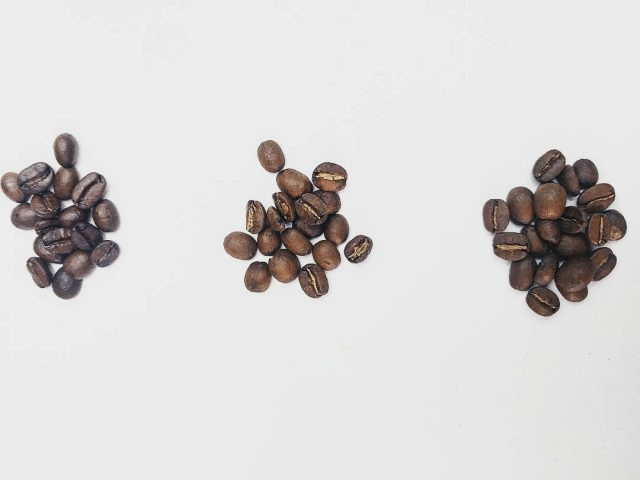
That is because the oily nature of the coffee is oxidized, resulting in the deterioration of the oil quality, the aroma of the coffee has volatilized and disappeared, and then accelerated by temperature, humidity, sunlight and so on, the bitterness of the oil will be more obvious after quenching.
If the coffee beans are well roasted and properly quenched, the bitterness will not be obvious, and you will think that the bitterness will turn into sweetness (what we call Huigan). The existence of bitter flavor, in fact, adds many different levels of value to a cup of black coffee, and it is also a place where black coffee is interesting and worth exploring.
All in all, the acidity or bitterness of coffee is not used to judge whether the quality is good or bad or whether it is fresh or not, it is all a subjective preference of personal taste, there is no right or wrong, try many ways, maybe you can also find your favorite sour / bitter coffee!
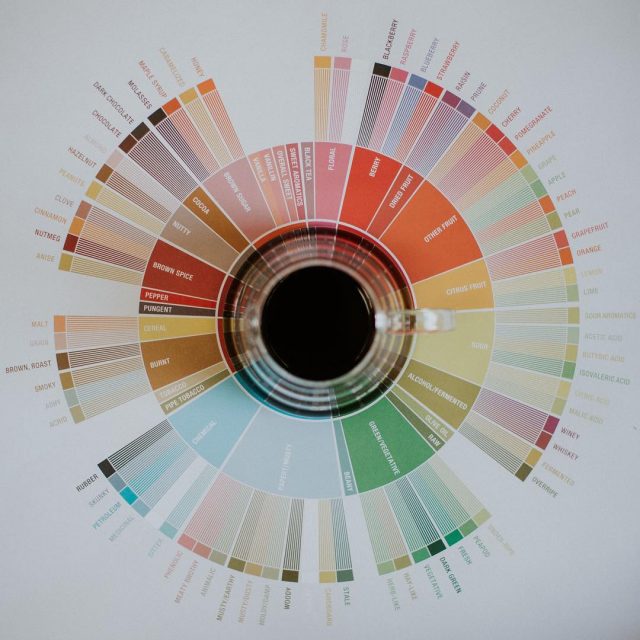
Six tips for tasting coffee
1. Sufficient time:
Only by tasting coffee without haste or delay can you come to a correct conclusion; only when you have enough time can you savor the layers of coffee in your mouth. Just after brewing, you can first observe the color and try to smell the aroma of the coffee, because it is timely, when the temperature of the coffee gradually drops, the aroma gradually dissipates.
Second, sufficient knowledge
It is important to have a complete knowledge of coffee and have tasted high-quality coffee. It is important to drink good coffee before you know what "good coffee" is.
Third, temperature:
Taste coffee only when it is slightly warm and cool, and then taste it repeatedly according to three different temperatures: non-hot, warm and cold, because the overheated water will blunt the taste of the tongue.
All of us should have experienced that a bowl of steaming and smoking noodles soup tastes just right at the beginning, but when the temperature of the soup drops in the end, the soup head is too salty; or in a hot summer, order a bowl of cold mung bean barley seed soup, which is just good in sweetness and very relieving the summer heat, but because it is originally frozen mung bean barley seed soup, which is not only not cold, but also tastes too sweet.
Another example is traditional Chinese medicine. People who do not like to drink traditional Chinese medicine may have experience. When traditional Chinese medicine is cooled, it tastes so heavy that it is even more difficult to taste, so you must drink it while it is hot, make a quick decision, and pinch your nose when necessary.
The conclusion is that too high or too low temperature will passivate the taste sensitivity of the tongue and eat too much salt and sugar. The same is true for tasting coffee. The temperature must drop to a cool temperature before you begin to taste, so that you can carefully distinguish different tastes.
IV. Comparison standards:
Prepare at least one cup of high quality coffee, which can be used as a standard for comparison.
5. Tasting interval:
When tasting, drink water to purify the taste and take a rest. Maybe it's a mouthwash. Some people do this simply because they don't want their stomachs to be full of water.
Taste standard: pure black coffee.
When the ingredients are fresh and of good quality, they are delicious to boil in clear and hot water, and even without adding any seasoning, they are delicious, but if the ingredients are not fresh, they have to be presented in a heavy way in order to suppress the bad smell and taste. The same is true of coffee, any shoddy coffee, as long as the addition of fresh milk, the taste immediately upgraded. So if you want to drink coffee, it's better or worse. Please drink black coffee.
Important Notice :
前街咖啡 FrontStreet Coffee has moved to new addredd:
FrontStreet Coffee Address: 315,Donghua East Road,GuangZhou
Tel:020 38364473
- Prev
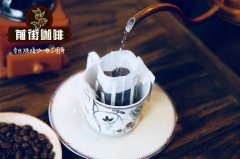
The construction of Italian bean grinder? What accessories do you have? What is the classification of the cutterhead?
Professional coffee knowledge exchange more coffee bean information please pay attention to the construction of the Italian bean grinder in the coffee workshop (Wechat official account cafe_style). What accessories do you have? What is the classification of the cutterhead? At present, there are too many kinds of bean grinders on the market, from a few hundred yuan chopper or hand grinder to tens of thousands of yuan commercial bean grinder, regardless of motor torque, speed or cutter head material.
- Next

What are the local conditions? What is the effect of local conditions on the flavor of coffee?
Professional coffee knowledge exchange more coffee bean information please follow the coffee workshop (Wechat official account cafe_style) What Is Terroir and How Does It Affect Your Coffee We often hear the word "local conditions" when talking about coffee, but what exactly does "local" mean? Does it have anything to do with the flavor of coffee? Why do we need to care about the local environment? Author mining
Related
- Detailed explanation of Jadeite planting Land in Panamanian Jadeite Manor introduction to the grading system of Jadeite competitive bidding, Red bid, Green bid and Rose Summer
- Story of Coffee planting in Brenka region of Costa Rica Stonehenge Manor anaerobic heavy honey treatment of flavor mouth
- What's on the barrel of Blue Mountain Coffee beans?
- Can American coffee also pull flowers? How to use hot American style to pull out a good-looking pattern?
- Can you make a cold extract with coffee beans? What is the right proportion for cold-extracted coffee formula?
- Indonesian PWN Gold Mandrine Coffee Origin Features Flavor How to Chong? Mandolin coffee is American.
- A brief introduction to the flavor characteristics of Brazilian yellow bourbon coffee beans
- What is the effect of different water quality on the flavor of cold-extracted coffee? What kind of water is best for brewing coffee?
- Why do you think of Rose Summer whenever you mention Panamanian coffee?
- Introduction to the characteristics of authentic blue mountain coffee bean producing areas? What is the CIB Coffee Authority in Jamaica?

